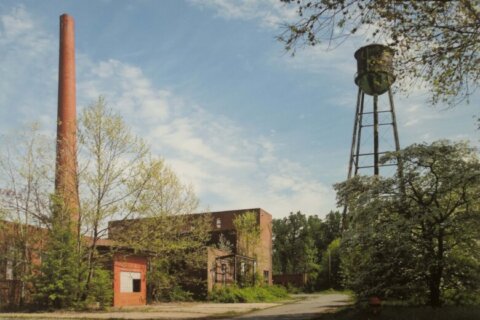“If you build it they will come” is a famous movie quote from “The Field of Dreams” that has applied to baseball and even baseball stadiums for decades. But if you build more housing, do the wider roads and other amenities come too?
The building and development industry in Prince George’s County, Maryland, is anxiously watching local legislation that they believe will stymie the very economic growth some county leaders have made a priority. Those on the county council say it’s putting a stop to sprawl that’s actually inhibiting the growth everyone seems to want.
Once the county council passes its budget, which could happen as soon as next Thursday, the focus will move to a bill that would restrict where new town house developments could be built. While the word moratorium has been used, in reality, it wouldn’t put a total stop to new town house communities, but it would essentially restrict them to areas around existing mass transit infrastructure.
“The biggest concern is it’s going to disincentivize investment in the county,” said Lori Graf, the CEO of the Maryland Building Industry Association.
For the council members drawing the ire of developers, they see a declining quality of life around the county that is already leading people to move elsewhere.
“When you engage in sprawl you undermine the ability to fund infrastructure,” council chair Tom Dernoga said. “We’re going to rein in sprawl development to try to make it so we can afford the infrastructure.
“Our public is upset about the lack of infrastructure,” he added. “And it’s all infrastructure. Roads are congested because when you sprawl out there’s just not enough lanes to handle everything.”
He argued it’s also causing problems with police and fire responders since they’re being asked to cover more area at a time when staffing is down in those departments.
“A lot of people don’t realize you need development to pay for infrastructure,” argued Graf. “Development helps pay for that through our fees, our impact taxes and through other things.”
Council vice chair Wala Blegay said that may be the case, but the revenue generated by town houses doesn’t cover the costs. She’s the one leading the bill that would temporarily restrict town house communities.
“Two hundred town homes only get you a certain amount of taxes,” Blegay said. “The amount of money that you have to spend for infrastructure for those 200 town homes is almost triple.
“We are strapped for cash because of the lack of infrastructure that we have and the money that you get for small town house developments here and there doesn’t’ really help,” she argued.
One area where there seems to be consensus is the need to improve the county’s Department of Permitting, Inspections and Enforcement. Graf said cutting down on the long waits and red tape that goes with getting all the approvals to actually start building projects that have been given the green light is needed, and the council seems ready to increase funding in that agency’s budget to improve service and response times.
But the budget crunch that’s taking up most of the council’s time right now is something that she said will be exacerbated by a new restriction, since fewer homes will get built and less revenue will come in.
Throughout the year, County Executive Angela Alsobrooks has been calling to increase the county’s commercial tax base, something Harrison believes will come when there’s a big enough population to demand it.
“Our dollars are good enough to be spent here in Prince George’s County,” Councilman Sydney Harrison said.
But Graf said those dollars will get spent elsewhere because restaurants and retailers won’t come without the population to serve it.
“Higher end retail do look at rooftops and how many people they can serve and if they have concerns about future growth in the county then they’ll look at going elsewhere,” Graf said. She’s hoping for a fiscal impact study before a final vote occurs.
But Blegay said that previously many developments never delivered on the amenities and new schools that were promised when they were built.
“You can’t have your cake and eat it too,” she said. “Either we have to focus on building the infrastructure as a county and we slow down some places that we don’t have the infrastructure, or we increase impact fees and then they pay for a lot more. And, if they’ll be able to pay for all the roadways and even pay for the schools and all of those things, then we can move forward.
“No one wants that bill,” added Blegay.
This argument is in the background while the council has also prioritized housing affordability. Harrison, who is opposed to the restrictions, said a recent study found the DMV will need more than 300,000 new housing units by the end of the decade.
“We as a jurisdiction have an obligation and a responsibility that we create the affordable housing options and housing opportunities for all,” Harrison said. “When you look at the opportunity of town home villas, those actually build equity within single family housing units because right now these town home villas, they’re not your traditional 1970s town house. They are actually town homes that are villas that are very nice.
“Those are the type of housing options that create affordable housing,” he also argued.
Graf also took note that areas like Arlington and Alexandria are having arguments in the other direction, with government leaders there pushing for denser development.
“That’s a national trend to go away from single family zoning and more toward higher density, mixed use development, where you get some retail, you get some town houses, you get some multifamily,” Graf said. “It’s better on your infrastructure because it’s more condensed, and you get the fees and all that stuff to help pay for a lot of the other infrastructure and you get the amenities people want.”
But Dernoga and Blegay have stressed repeatedly they’re not flatly against denser development.
“We’re supporting a lot of development in places that are smart growth and make sense and we’re saying don’t do the development in these other areas that are going to create more problems than they solve,” Dernoga said. “We’re trying to transition that development to better locations that make more sense so we’re saving in the long run.
“You can’t have it both ways,” he added. “Thirty years of doing the wrong thing and digging yourself a big hole, at some point you need to wake up.”








